Showing 1-18 of 18 results
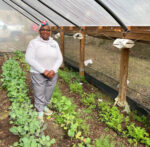
Pest Exclusion Systems for Pest Management in Vegetable Production Across the Southeast
In organic vegetable production, and in situations where farmers are seeking to reduce chemical applications, Integrated Pest Management (IPM) strategies are recommended to exclude pests in both opens fields and in high tunnels. The principles of pest exclusion involve separating the insect pest from the host plant and protecting the crop at a specific growth stage. Careful planning of both materials selected and management design are important to keeping pests out of a cash crop. This bulletin provides data and information from on-farm demonstrations on the use of pest exclusion systems. Pest exclusion systems use shade cloths as a barrier around high tunnels, low tunnels and hoop houses to exclude insect pests.
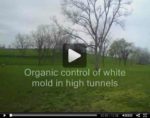
Organic Control of White Mold in High Tunnels
The fungus Sclerotinia sclerotiorum infects many of the cool-season crops produced in Kentucky. This SARE-funded video presents information on the high tunnel production system most commonly used in Kentucky; the disease cycle of S. sclerotiorum; and two control tactics compatible with national organic standards, solarization and biofumigation.
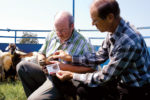
FAMACHA
FAMACHA is a diagnostic tool to help farmers identify parasite infection in small ruminants, allowing them to cut the cost of deworming agents by targeting treatments only to infected animals. Training is required before purchase.

Private Landowners Guide to Forest Certification in the South
"Private Landowners' Guide to Forest Certification in the South," developed by the LSU Ag Center and Mississippi State University Extension, helps forest landowners understand forest certification.
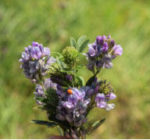
Integrating Legumes with Grass to Improve Forage-Livestock Systems
In a Southern SARE-funded Research and Education Grant (LS14-261), "Long-term Agroecosystems Research and Adoption in the Texas Southern High Plains -- Phase III," Texas Tech University researchers conducted a steer grazing trial comparing a grass only system to a grass-legume system for animal productivity and water use efficiency.
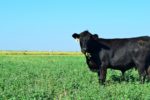
The Performance of Cover Crops in Minimally Tilled Forage-based Grazing Systems
In a Southern SARE-funded Graduate Student Grant (GS15-152), “Evaluation of Winter Annual Cover Crops Under Multiple Residue Management: Impacts on land management, soil water depletion, and cash crop productivity,” Texas Tech University researchers investigated five cover crops species as potential complements to a warm-season beef-stocker grazing system. The impact of the project was two-fold: Stabilize the soil surface from excessive wind erosion and desiccation; and strengthen rural communities by ensuring the persistence of profitable agriculture in the region.
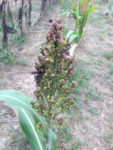
Innovations in Large-Scale Trap Cropping for Reducing Insect Pests
Trap cropping is a unique pest prevention system that uses insect behavior to deter pest feeding. Benefits of trap cropping not only include effective pest management, but trap crops can also increase biodiversity, conserve natural enemies and reduce wind damage to main crops.

High Tunnel Pest Exclusion System
Insect pests are one of the major problems in organic production systems. Organic IPM practice consists of a three-tiered approach consisting of systems-based practices, mechanical tactics, and biorational insecticides. Mechanical tactics encourage the use of physical barriers for pest exclusion. This bulletin provides preliminary research data and field observations about the success of shade cloths, or high tunnel pest exclusion (HTPE) systems, as a more permanent barrier system around the high tunnels.
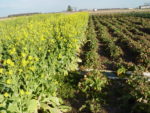
Cover Crops for Weed Management in Row Crops
The use of cover crops for weed control can help conventional producers combat herbicide-resistant weeds and organic producers reduce dependency on cultivation as their primary weed control mechanism.

Perennial Grass Cover Crops Can Optimize Wine Grape Growth
Vineyard cover crops or ‘living mulch’ consists of either sown or native vegetation, grown in vineyard row middles and/or inclusive of the area under the vine trellis (Fig. 1). Although cover crops can increase pest pressure (arthropods and voles) and vineyard management costs, benefits of cover crops include: erosion and weed control, reduction of herbicide use and mitigation of excessive vine vigor.
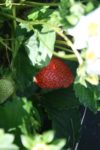
Evaluating Nutrient, Soil Health, and Economic Benefits of Compost Additions to Summer Cover Crops for Strawberries in North Carolina
Over the past 8 years, a team of multidisciplinary faculty and students at NC State University have conducted various field-based studies at the Center for Environmental Farming Systems (CEFS) and on-farm research examining the impact of summer cover crops, compost additions and applications of beneficial arbuscular mycorrhizal fungi and vermicompost on soil health, nutrient availability, and yields in conventional and organic strawberry production systems.

Soil Quality of Integrated Crop/Livestock Systems: Enhancing soil carbon sequestration and microbial diversity
In the Southern SARE-funded study (LS10-229), “Integrated Crop and Livestock Systems for Enhanced Soil Carbon Sequestration and Microbial Diversity in the Semi-arid Texas High Plains,” Texas Tech University researchers evaluated integrated crop/livestock systems for long-term soil quality by assessing microbial activity and soil carbon storage.
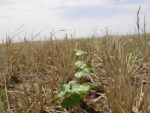
Cover Crops and Cotton in the Texas High Plains: SARE research summary, 2007-2009
In a Southern SARE-funded Graduate Student Grant (GS07-056), “Allelopathic Effects of Small Grain Cover Crops on Cotton Plant Growth and Yields,” Texas Tech University researchers investigated allelopathy as the possible cause of the observed suppression and to incorporate livestock grazing as a means of reducing the allelopathic effects on the cotton crop.
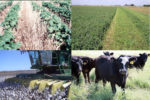
Agroecosystems Economics in the Texas High Plains: A 10-year analysis, 1999-2008
Based on 10 years of Texas Tech University research, integrated cotton-forage-beef cattle systems are just as profitable as cotton monoculture systems. But there’s more. Integrated crop-livestock systems use less irrigation water, are more energy efficient, preserve soils by reducing wind erosion, and have a lower economic risk related to specific-loss events, such as a drought.
Sustainable High Plains Research Bulletins
A series of bulletins showcasing the various facets of Texas Tech University research on integrated crop and livestock production systems in the Texas High Plains. The bulletins cover sustainable agroecosystems, crops and soils, and water conservation.
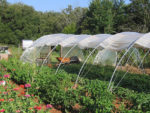
High Tunnel Crop Production Handbook
A high tunnel crop production handbook from Alabama Cooperative Extension.
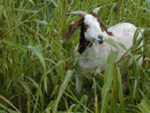
Sustainable Year-Round Forage Production and Grazing/Browsing Management in the Southern Region
An educational training video to increase the productivity, quality, and production of forages, as well as to improve management of existing pastures for sustainable livestock production.
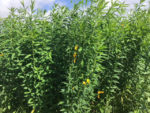
Annual Cover Crops in Florida Vegetable Systems
Fact sheet series from the University of Florida IFAS Extension on integrating cover crops in vegetable production systems in Florida.